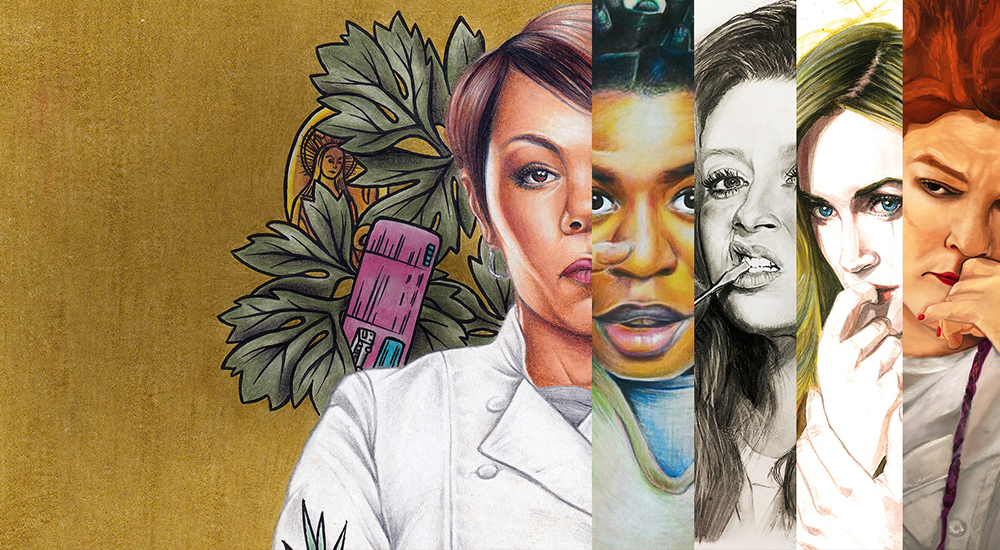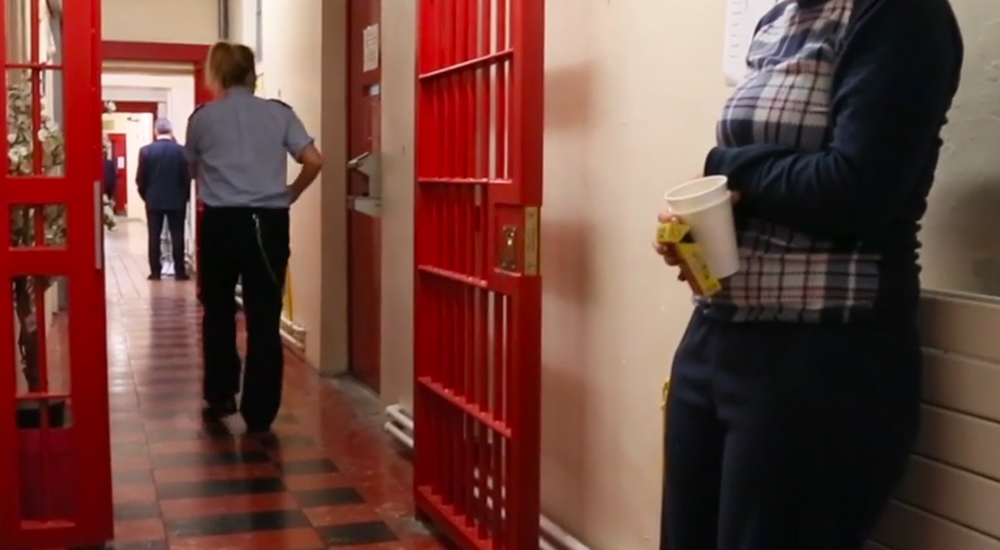The newly emerging body of queer criminological research which seeks to explain and understand the lives of LGBT+ who have encountered the criminal justice system is important in terms of shedding light on hidden communities which fall under the LGBT+ umbrella. However, in Ireland, we remain almost completely clueless about the situations of sexual minorities in prison, particularly women who identify as lesbian or bisexual. There has only been one piece of research which examines the lives of LGBT+ people in prison in Ireland (Carr et al., 2016), and there is currently no policy-based recognition for this potentially vulnerable population.

Orange Is the New Black portrays an almost sensationalist picture of what life is like for women in prison who identify as lesbian or bisexual. It’s all very sexy and exciting. However, this depiction can overlook the fact that these women have been known to face stigma and barriers to healthcare due to their perceived or disclosed sexual orientation (United Nations, 2009). Women who engage in same-sex relationships in prison are often categorised under the “jail gay” umbrella, framing their relationships as being based solely on their inability to engage in and maintain conventional heterosexual practices. This categorisation results in a lack of knowledge and understanding with regards the nuances and fluidity of sexual orientation. Furthermore, understandings about the construction and negotiation of sexual orientation for lesbian and bisexual women held in detention in Ireland remains hidden and overlooked.
There is a call for more knowledge. A call for more understanding. But how can we do this when we don’t know who these women are or where they are from? Most women convicted in Ireland are sentenced for short periods. We know that their crimes are often petty in nature and that the women (more often than not) come from poor socio-economic backgrounds. We don’t know much about their daily lives in prison. We don’t talk about sexual orientation in the prison context. Thus the prison in Ireland remains a heteronormative environment.
Through research, we understand that despite progress in Ireland, LGBT+ people experience higher risks of mental health issues, often due to their experience of stigma, concealment of identity and internalised homophobia (Mayock et al., 2009). In the prison setting, this risk has the potential to increase exponentially. An intersectional crisis of identity can emerge- these women have ended up in prison, but also identify as a lesbian or bisexual woman. Do these women have equal access to healthcare- mental, physical, and social. Do they ever experience stigma or homophobia due to their perceived or disclosed sexual orientation?

In the hope of shedding light on some of these questions, I began the PhD journey in 2016 intending to find out more about the situations and needs of these women, so that policy-based recommendations can be made based on the findings of the research. This research will be the first in-depth examination of the prison experiences of women who identify as lesbian or bisexual and is funded by the Irish Research Council. I am supervised by Dr Paula Mayock, who has a wealth of experience conducting qualitative research with marginalized populations, including LGBT+ communities.
The research has tangible policy implications at both a domestic and European level. I will aim to privilege the perspectives and meanings these women associate with their own lives and will seek to empower women to share their stories. While the research will ask participants about key topics, interviews will be flexible, allowing participants to raise issues they feel are important. The research is guided by the following key questions:
- What are the healthcare needs of lesbian and bisexual women in prison in Ireland (physical, mental and social)?
- How or do these women disclose their sexual orientation within the prison setting?
- Have participants ever experienced stigma based on their perceived or disclosed sexual orientation?
- What resources do participants feel would assist them with the negotiation and construction of sexual orientation within the prison setting (media, counselling, etc.)?
Call for Participants
I would love to hear from anyone who identifies as a lesbian or bisexual woman and has been held in an Irish prison in the last five years to talk about the research further. The inclusion criteria for this research is as follows:
- Aged 18 years or over;
- Self-identify as a lesbian or bisexual woman;
- Be either Irish or non-Irish;
- Have the capacity to give both verbal and written informed consent to participate in the research;
- Understand the limits of confidentiality.
There will be no upper age limit imposed in terms of participation in the study. Participants for whom English is not their first language must have enough English language proficiency to understand the purpose of the research- its aims and objectives and what their participation involves. The Information Sheet that all individuals receive will be written in plain, simple English and will contain no jargonistic language.
If you would like to be part of this vital study, contact [email protected]
© 2019 GCN (Gay Community News). All rights reserved.
Support GCN
GCN is a free, vital resource for Ireland’s LGBTQ+ community since 1988.
GCN is a trading name of National LGBT Federation CLG, a registered charity - Charity Number: 20034580.
GCN relies on the generous support of the community and allies to sustain the crucial work that we do. Producing GCN is costly, and, in an industry which has been hugely impacted by rising costs, we need your support to help sustain and grow this vital resource.
Supporting GCN for as little as €1.99 per month will help us continue our work as Ireland’s free, independent LGBTQ+ media.
